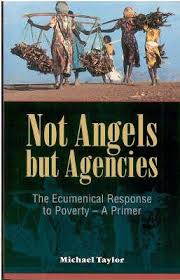
Not a penny for the missionaries. Keep politics out of it. Why do you fund guerrillas? Are you Oxfam with hymns? These are some of the characteristic doorstep responses that have been and are still made to Christian Aid, especially during its great fund-raising activity of the year, Christian Aid Week. They indicate that there is a good deal of ignorance and confusion about the way in which Christians respond to poverty. This book attempts to provide some basic information, in an attractive way, about how churches and church organizations around the world have tried to make an effective response to the poor over the past half-century. It discusses the main issues in a thematic way, looking in particular at controversies that surround church-related aid, relief, mission and development agencies in the first world. Among the topics treated, using case studies and ecumenical statements, are the wholeness of Christian mission, the links between personal action and political action, and the ambiguities of power. Other contemporary challenges addressed are doubts about aid in the persistence of poverty, the scale of emergencies in Africa and the churches' ability to respond to them, competition or free market charity and compassion fatigue. In conclusion the book suggests what it means to respond to poverty in a Christian and ecumenical way and draws out some implications for the future. Published in collaboration with the World Council of Churches. Michael Taylor was Director of Christian Aid.



